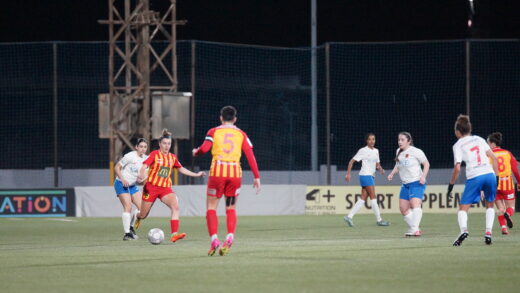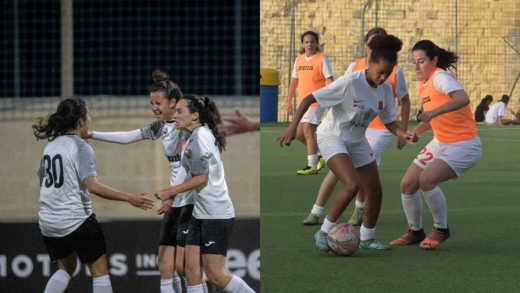The new season brought with it plenty of reform in the women’s leagues across the board, including a change in schedules to avoid players playing back-to-back matches. However, the turn of the new year brought with it the loophole for a return to old ways.
Player Eligibility
The new season brought with it plenty of change, part of which was instigated by an uproar following the scheduling of two back-to-back finals of the U17 and U21 last year. The situation would have resulted in some players playing two finals within a span of twenty-four hours or else having to choose between them. It shed spotlight on the fact that many players were getting fielded in the two leagues and playing back-to-back matches regularly, against the guidelines of FIFPRO who recommend a minimum of 72 hours between matches.
There was effort to address this during the summer by the MFA Women’s Department, following which the Youth League (U19 instead of U21) started to be played on weekdays (Tuesday and Wednesday), while the senior league was shifted to Thursday to Saturday. The U16 league match-days were kept on Sundays.
The shifting of the match-days for the respective leagues, together with the relevant age brackets meant that players were only eligible to play in two leagues in the form of senior & U19 league, or U19 and U16 league. In this regard, the possibility of players playing back-to-back matches was eliminated.
That was until January rolled around. Eligibility for the Assikura Women’s League requires is that the players turn sixteen years of age in the calendar year i.e. as of January it includes those born in 2008. Thus, players turning sixteen in 2024 are now eligible to play in the Assikura Women’s League (senior), the Assikura Women’s Youth League (U19) and the BNF Women’s National League (U16) league.
Is This A Problem?
There are different reasons why a team may opt to field these players in the three leagues. In some cases, clubs have opted to give young players who are promising and now eligible, a small amount of minutes to taste senior league football, while continuing to regularly field them in the U19 and U16 leagues.
Planned correctly and with communication across the coaching staff of the different women’s teams within a club, the choice to give players some sporadic minutes in the senior league, during which their playing time in other leagues is rescinded, could perhaps be beneficial in the development.
However, in other cases, when the squad depth is stretched thin, the eligibility of these players plugs a more serious long-term issue of lack of squad numbers. In such cases, there is the risk that player welfare is sacrificed for the short term solution of making up the numbers to compete.
In the least problematic scenario of players being regularly fielded across the three leagues, the player becomes increasingly tired and so ineffective in certain matches. At worst, they sustain injuries of which the gravity can be varied.
It is well documented that long-term injury has negative impacts that extend beyond the physical nature of the injury. In the worst case, the player becomes disenchanted with the game and drops off the scene altogether. It does not only end their relationship with football, but can have social and psychological consequences beyond it. Adding to it the fact that these players are just turning sixteen adds another layer of complexity.
View Of The Football Association
Contacted for comment regarding the eligibility of players and whether clubs are required to drop such players from one league, the MFA Women’s Department responded, “That rule was there last season, but since the (senior) league was moved to the weekend and the youth league during the week, the number of players that can play in both seniors and U16s (back-to-back matches) is very minimal and the rule was removed. It’s up to the coaches that they do not burn their players.”
As noted above, the players becoming eligible for the three leagues in the latter part of this season are those born in 2008. FIFPRO guidelines recommend a minimum of 72-hour breaks between matches.
Stay up to date by following The Sporting Fan on social media: Instagram ~ Facebook ~ X




2 Responses
[…] debate was fuelled following last week’s comments from the Malta Football Association Women’s Department that put the responsibility on coaches to rotate following changes in the organisation of the […]
[…] highlighted made it very clear that it takes two to tango and that it is the responsibility of coaches (and clubs), as much as it is that of the Malta Football Association issuing the fixtures to consider this. […]